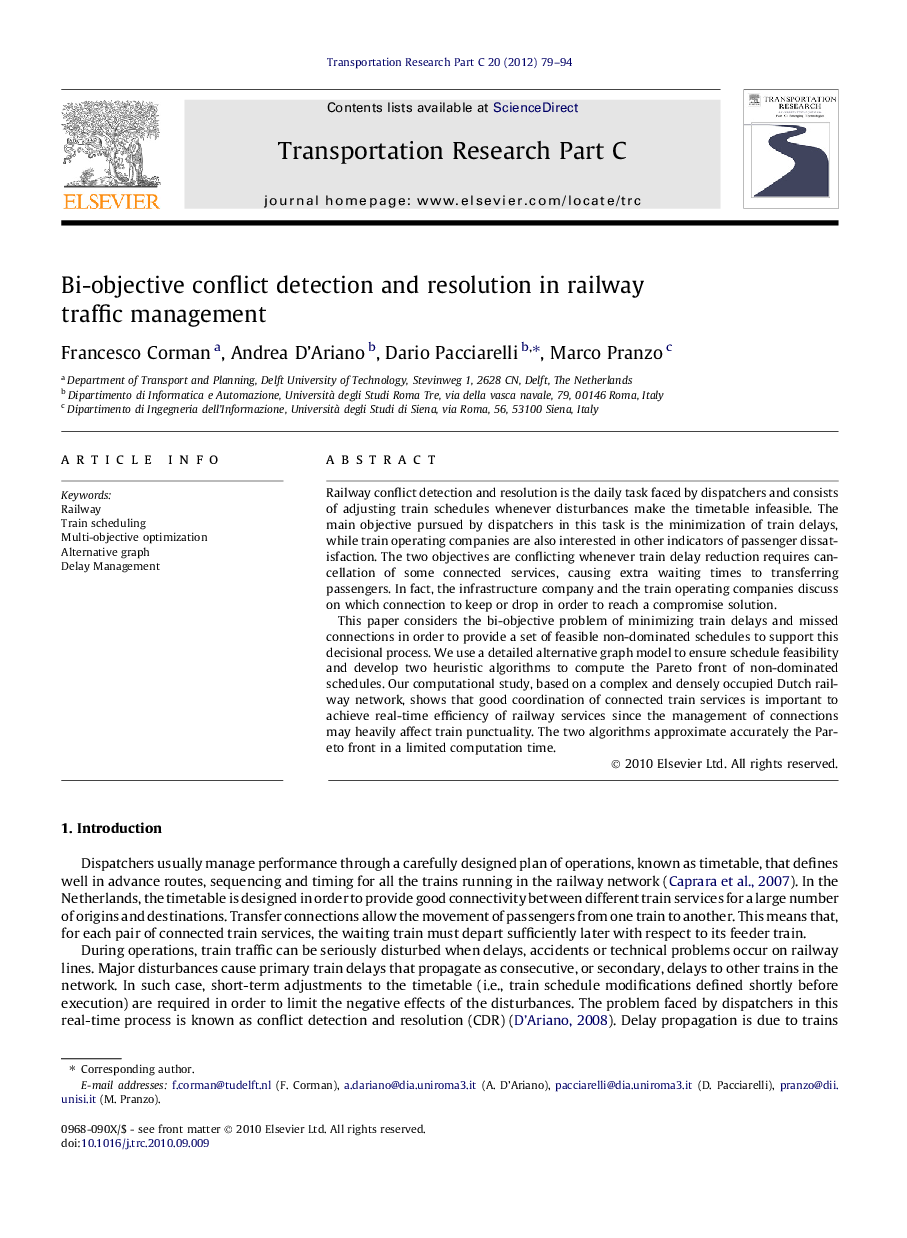| Article ID | Journal | Published Year | Pages | File Type |
|---|---|---|---|---|
| 525456 | Transportation Research Part C: Emerging Technologies | 2012 | 16 Pages |
Railway conflict detection and resolution is the daily task faced by dispatchers and consists of adjusting train schedules whenever disturbances make the timetable infeasible. The main objective pursued by dispatchers in this task is the minimization of train delays, while train operating companies are also interested in other indicators of passenger dissatisfaction. The two objectives are conflicting whenever train delay reduction requires cancellation of some connected services, causing extra waiting times to transferring passengers. In fact, the infrastructure company and the train operating companies discuss on which connection to keep or drop in order to reach a compromise solution.This paper considers the bi-objective problem of minimizing train delays and missed connections in order to provide a set of feasible non-dominated schedules to support this decisional process. We use a detailed alternative graph model to ensure schedule feasibility and develop two heuristic algorithms to compute the Pareto front of non-dominated schedules. Our computational study, based on a complex and densely occupied Dutch railway network, shows that good coordination of connected train services is important to achieve real-time efficiency of railway services since the management of connections may heavily affect train punctuality. The two algorithms approximate accurately the Pareto front in a limited computation time.
Research Highlights► A good trade-off is required between minimization of delays and missed connections. ► BCDR combines a capacitated CDR with the minimization of passenger dissatisfaction. ► Fast BCDR algorithms are very effective in approximating the Pareto front. ► Keeping or dropping connections may have a serious impact on delay propagation. ► Criticality of connections supports dispatchers when taking real-time decisions.
